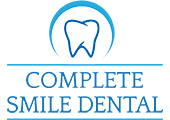As a result of a general improvement in community oral health care and awareness over the last 50 years, older adults in Australia now enjoy higher tooth retention rates than seniors in the past.
However, just because an older adult has made the distance with most of their natural teeth intact, doesn’t mean that their biggest oral health hurdle has been cleared. Keeping one’s oral health on track in old age is what gets increasingly difficult over time. This is why good daily oral care and hygiene is so essential at this life stage.
Older adults are more susceptible to oral disease than younger adults
Older adults who have retained more of their natural teeth are at a life stage with a higher risk of gum disease (periodontitis), and oral health complications brought about by their previous dental history.
The immune system can weaken with age, poor sleep and chronic stress. If an older adult’s immune system becomes impaired, they will produce fewer immune cells – reducing their ability to fight and recover from oral infection and disease. Other age-related factors include decreased salivary gland function and dry mouth which can increase their susceptibility to tooth decay and other oral conditions.
Poor oral health affects older adults’ general health, well-being and lifestyle
When an older adult experiences poor oral health, it may affect a number of other areas in their life, and in some cases, have a domino effect of negative health consequences. An older adult with oral conditions may experience the following health outcomes:
- Halitosis (bad breath) may become a barrier to social participation leading to increased social isolation and loneliness.
- Dry mouth caused by decreased salival function and certain medications can lead to higher levels of oral bacteria, plaque and disease.
- High levels of oral bacteria can cause aspiration pneumonia which is the leading cause of death (from infection) in frail older adults.
- Gum disease & poor oral health has been linked to older adults having a higher risk of developing and/or complicating health conditions such as Alzheimer’s disease, heart disease, stroke and diabetes.
- Oral pain and jaw-related difficulties, such as TMJ, can limit chewing efficiency which can result in poor nutritional intake, digestive issues and reduced overall body health, weight, energy and strength.



